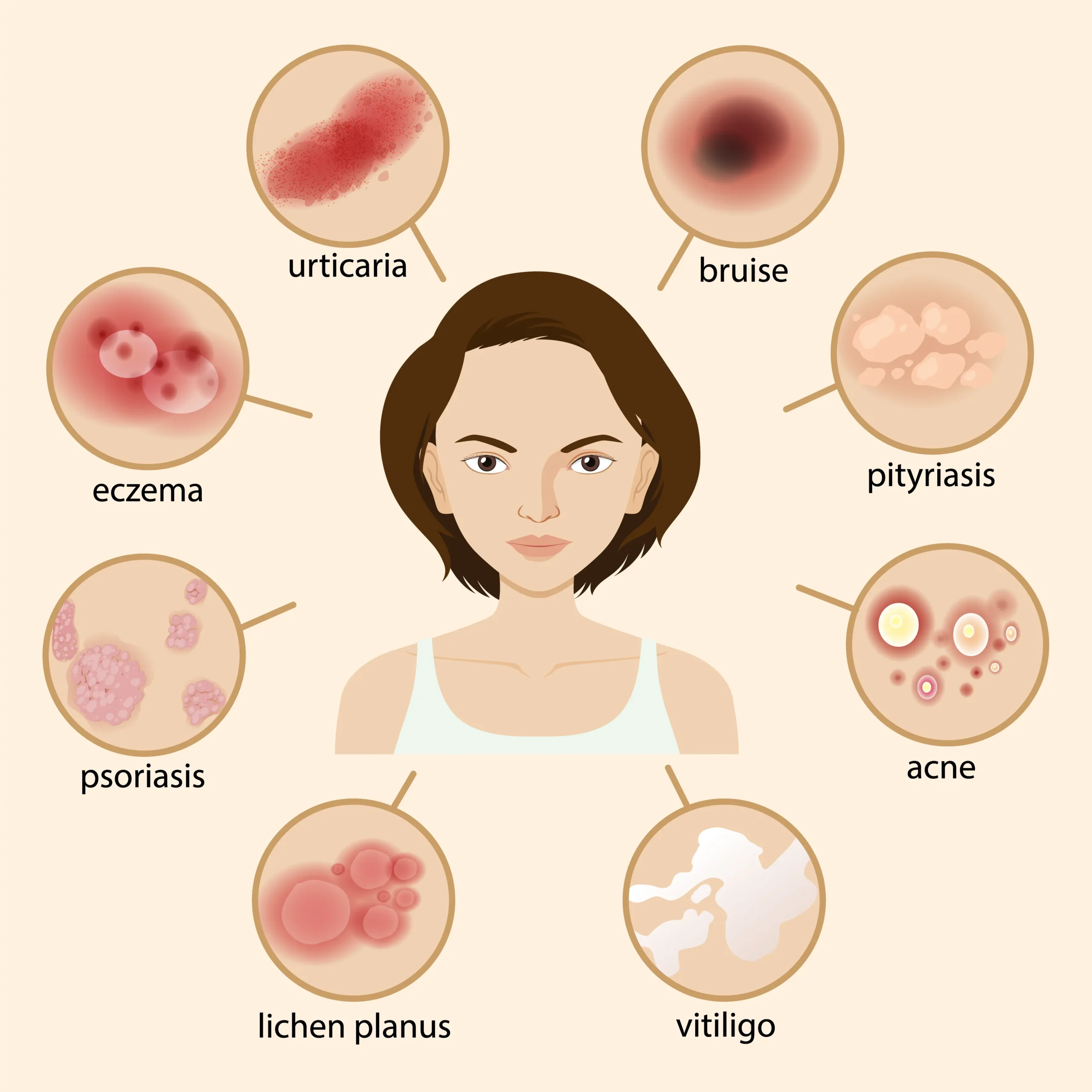We’re selling organic products
Discover the Power of Nature with Our Organic Products
+91 83064 08402

Understanding Eczema
Eczema (Atopic Dermatitis)
Overview
Eczema, also known as atopic dermatitis, is a common skin condition characterized by inflamed, itchy, and red patches of skin. It can vary in severity and often occurs alongside other allergic conditions like asthma and hay fever. Understanding the causes, symptoms, and treatments for eczema is essential for managing and alleviating its symptoms.
Causes
The exact cause of eczema is not fully understood, but it is believed to involve a combination of genetic and environmental factors. Common triggers include:
- Genetics: Family history of eczema or other allergic conditions.
- Immune System Dysfunction: Abnormal immune responses that lead to inflammation in the skin.
- Environmental Factors: Allergens (such as pollen, pet dander), irritants (like soaps and detergents), and climate changes.
- Skin Barrier Dysfunction: Defects in the skin barrier that allow moisture out and irritants in.
Symptoms
Symptoms of eczema can vary widely but often include:
- Itching: Intense itching is a hallmark symptom.
- Dryness: Skin may appear dry, scaly, or rough.
- Redness: Skin may become inflamed and red.
- Rashes: Patches of irritated skin that may ooze or crust over, especially with scratching.
- Thickened Skin: Over time, constant scratching can cause thickened, leathery skin.
Treatment
Treatment aims to relieve itching, reduce inflammation, and prevent flare-ups. Options include:
- Moisturizers: Regular use of thick, fragrance-free moisturizers to keep the skin hydrated.
- Topical Steroids: Corticosteroid creams or ointments to reduce inflammation and itching during flare-ups.
- Antihistamines: Oral antihistamines can help relieve severe itching and promote better sleep.
- Avoiding Triggers: Identifying and avoiding triggers like certain foods, fabrics, and environmental factors.
- Topical Calcineurin Inhibitors: Non-steroidal creams or ointments for long-term management, especially on sensitive areas.
Prevention
While eczema cannot always be prevented, certain measures can help manage symptoms and reduce flare-ups:
- Skincare Routine: Use gentle cleansers and moisturizers suitable for sensitive skin.
- Avoid Irritants: Limit exposure to soaps, detergents, and other known irritants.
- Manage Stress: Stress can trigger or exacerbate eczema, so stress management techniques may be helpful.
- Monitor Skin: Regularly check your skin for changes and seek prompt medical advice for worsening symptoms.
When to See a Dermatologist
If eczema symptoms are severe, persistent, or impacting your quality of life, it’s important to consult a dermatologist. They can provide a proper diagnosis, recommend appropriate treatments, and help manage your condition effectively.

Why Choose SGP Group?
Experience exceptional service and unparalleled support with SGP Group.
-
Refreshing to get such a personal touch in service
-
Committed to excellence in every interaction
-
Innovative solutions tailored to your needs
Frequently Asked Question!
Eczema flare-ups can be triggered by various factors, including:
- Allergens: Such as pollen, pet dander, dust mites, and certain foods.
- Irritants: Like soaps, detergents, wool fabrics, and synthetic fibers.
- Weather Conditions: Cold, dry weather can worsen symptoms, as can hot and humid conditions.
To relieve itching from eczema:
- Keep Skin Moisturized: Use thick, fragrance-free moisturizers regularly to prevent dryness.
- Use Cool Compresses: Apply cool, damp cloths to the affected areas to soothe itching.
- Avoid Scratching: Keep nails short and wear gloves at night if scratching is a concern.
Eczema is a chronic condition with no known cure, but it can be managed effectively with proper treatment and lifestyle adjustments. Many people experience periods of remission and learn to control their symptoms through skincare routines and avoiding triggers.







